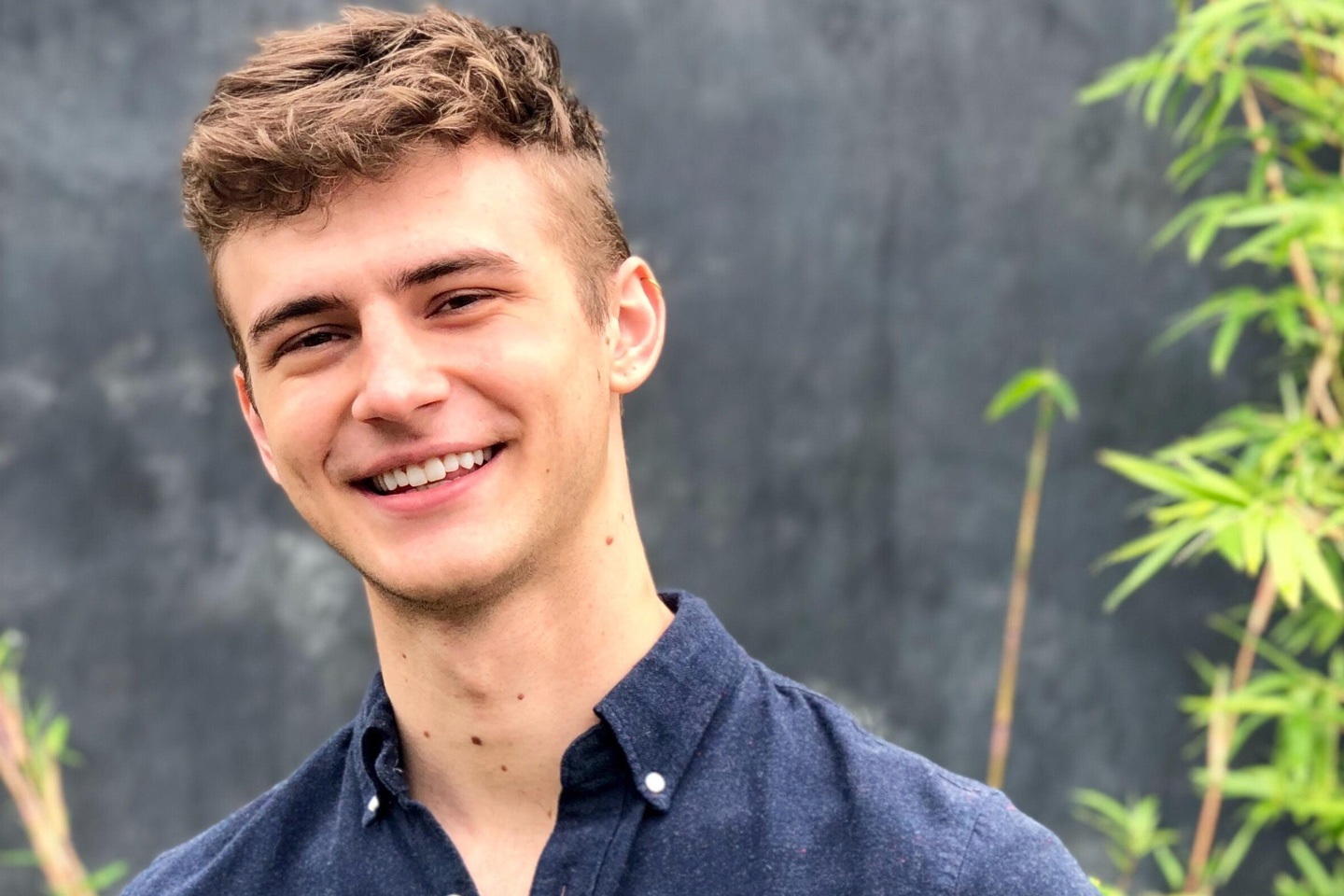Health Leadership Apprentice Program coordinator Landon A. Hackley authored the following post.
John Saxton is a recent University of Texas at Austin graduate with degrees in biology and sociology who joined the Health Leadership Apprentice (HLA) Program in spring 2018. Saxton has a heart for serving others, which is exemplified by the founding of his flourishing flower charity, Gleeful.

Saxton’s goal is to uplift the spirits of people in palliative care by brightening their rooms with repurposed flowers while simultaneously preventing the flowers from being thrown away. He got the idea while working in a palliative care facility in Uganda, but his time in HLA in Austin allowed him to bring it to life.
Saxton wanted to create a program that would help humanity on two fronts: health and environment. Through his personal working experiences, Saxton learned about the mental and physical health benefits a colorful, clean clinical environment can provide patients. With this is mind, Gleeful was founded with people as the highest priority, particularly people in palliative care and people with chronic illnesses.
Saxton’s program aims to boost the morale and overall mental health of people in palliative or end-of-life care by brightening their rooms and care facilities with fresh, aromatic flowers. He hopes that by doing so, patients will be more comfortable in their greener rooms. Gleeful accomplishes this by coordinating teams of volunteers to take leftover flowers from florists and large events that would normally be thrown away and give them new, permanent homes in local care facilities.
Being an environmentally sustainable business is important to Saxton, and he is quite literally taking the term “green business” to the next level. He said all of the flowers that go into the many palliative care facilities around Austin are repurposed from large events such as corporate celebrations, weddings and more. They also come from the leftover, unpurchased flowers that florists have at the end of the day that typically get thrown out. This way, Saxton can keep his business running for little to no cost, which means more people will get to enjoy the benefits of his green thumb as he works to expand his organization.
Saxton founded Gleeful based on an idea he had while working for a palliative care facility in Uganda during summer 2017.
“I would pick up flowers for a woman I was caring for every day on my way to work, and one day I stopped to ask the florist what they did with all of the leftover flowers at the end of the day,” Saxton said. “I was shocked to learn that they threw all of the leftovers away.”
He saw there was a need for “a spot of green” in the patients’ rooms, and now there was an opportunity to divert waste into something useful. This sparked the idea that would eventually become Gleeful.
Saxton plans for the program to continue long after his time UT Austin. He has been recruiting help from students in HLA and the university, and so far, he has delivered over 180 bouquets to several of Gleeful’s partners, including Dell Seton Medical Center, Hospice Austin and Project Transitions. All of the flowers came from local wedding planners and florists around Austin. His goal is to continue expanding the service. He hopes to one day be able to repurpose other items for the benefit of both people and the environment.
If you are interested in learning more about Roy’s work, reach out to an HLA program coordinator.